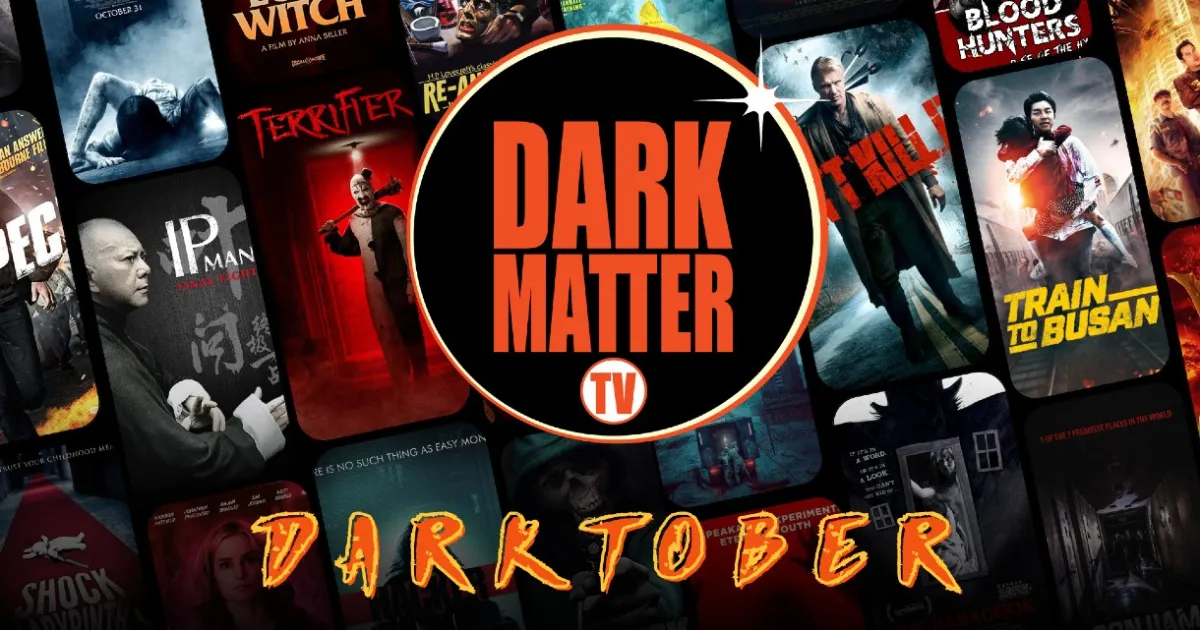Table of Contents
As the Rotterdam Film Pageant fires its programming workforce, questions crop up about what it would take to better defend this occupation.
Occupation safety in the movie market is never ever a positive point. In this instant, it could possibly look notably fragile if you work in a susceptible division of Netflix or a redundant division of Warner Bros. To that checklist, you could also insert movie festival programmers — and they really should have some of the most secure employment in the sector.
Contemplate how Netflix stock hits a new minimal each individual day in element to an overreliance on algorithms and as well a great deal content material that not more than enough people watch. The too much to handle total of world material generation has pressured even the most important streamers to understand that curatorial conclusions make a difference extra than pure data, which means the skillsets of a programmer — and it is a talent — should be at their optimum demand. This is specially real for film festivals, which are outlined by curation.
And still modern occasions talk to the fragility of the occupation. Last month, the Intercontinental Movie Competition Rotterdam laid off its full programming staff as aspect of an organizational “restructuring” to be followed by announcing a new group at Cannes. The festival hinted at the move a few months back when it announced a 15 percent staff reduction this angered and perplexed programmers, some of whom experienced worked at the competition for decades. Dutch newspapers started reporting on the condition this week with anonymous testimonies from ex-programmers and some others who lately remaining the competition some also contacted me to vent about management choices.
This column isn’t right here to scold any pandemic-stricken group forced to scale back again its methods, which is almost all of them, immediately after all. But the downsizing of a main movie competition at the price of its most valuable gamers speaks to a broader disaster at perform.
I have lengthy admired Rotterdam from afar (with dates that generally overlap with Sundance, it’s tricky for North Us citizens to make the trek). The 50-calendar year-outdated Dutch celebration has earned a rep for uncompromising, non-business programming and an capacity to start edgier movies into the broader ecosystem. In 2019, the last in-person edition to day, the festival noted 327,000 ticket sales. It also hosts the Cinemart sector, a critical stopover for numerous prospective buyers and sellers in advance of Berlin and Cannes.
Programming hits more than the yrs have ranged from Tomas Alfredson’s “Let the Correct One In” to Kleber Mendonca Filho’s “Neighboring Appears.” It is also a pure waystation for certain crucial Sundance titles on the lookout to develop their world-wide profiles, specifically those that weren’t accepted at Berlin, the place the festival’s scale can dwarf far more bold do the job. Important U.S. filmmaking that moved from Sundance to Rotterdam contain Kelly Reichardt’s “Old Pleasure,” Eliza Hittmann’s “It Felt Like Enjoy,” Rick Alverson’s “The Comedy,” and Gillian Robespierre‘s “Obvious Youngster.” Among the these, only Robespierre’s movie is a uniform crowdpleaser the some others involve the discerning audiences and essential enthusiasm that cinema-initial festivals like Rotterdam deliver. It’s a distinctive form of curatorial validation.

“It Felt Like Love”
Gravitas Ventures
Rotterdam’s resources have been shrinking for some time. The pageant confronted many rounds of budgetary reductions in modern years: from $10 million euros to $9.8 in 2020 the competition went virtual the pursuing 12 months. The spending budget for the 2023 competition is $7.8 million. A competition consultant advised me that in the absence of ticket profits, Rotterdam has missing $2 million for every yr.
Present-day creative director Vanja Kaludjercic took over from Netherlands Movie Fund CEO Bero Beyer in late 2019. Any chief of an arts institute who entered into a prime occupation at this time confronted an unprecedented trial by fireplace (see: Sundance director Tabitha Jackson). Kaludjercic’s reaction seems to have alienated her programming team. Some complained to me about a sudden reduction of autonomy: Relatively than belief programmers to make crucial conclusions, any movie experienced to be submitted to a separate committee headed by Kaludjercic for acceptance.
Programmers reported they started off to sense a lot more like outdoors consultants than senior customers of the programming crew. “There ended up no standard conversations about films any more,” 1 former staffer instructed me. “It felt like Vanja just needed to make the plan herself.”
Other previous staffers complained about an opaque communications method at the previously collegial corporation in which programmers had to enter knowledge into countless spreadsheets in get to submit tips to bureaucratic acceptance. That was at odds with the normally run-and-gun nature of the programming procedure: Films are often dashing to make festival deadlines and plans can be issue to the whims of the creators themselves. “You are working with creative information,” a different former staffer explained. “Organizing the competition is a little bit of chaos idea. You really do not have time to fill out an Excel sheet with 100 various policies.”
Programmers and other people at the firm explained to me that pushback to these protocols put them on the chopping block. Kaludjercic declined to tackle these allegations, but statements emailed to me “on behalf of the IFFR team” by a pageant agent disputed them. “We have welcomed everyone’s enter at each individual point in the course of the method restructure, which has been the do the job of the earlier two several years,” they wrote. “The all round group restructure is joined to the two the economic pressures dealing with the festival, and producing an inner infrastructure, which is far more sustainable and cultivates a frequently evolving, lively, and dynamic method.” The pageant also stated it anticipated to include things like some of the original programming workforce among the its new hires.
We have still to see what that looks like. But Beyer, the previous Rotterdam director, told me that the restructuring may well have been the only way for the competition to lower positions that ended up tied to multi-yr contracts, specified The Netherlands’ ironclad labor legislation.
“They experienced to do anything,” he claimed. “The workforce has very long-time period contracts, which tends to make it extremely hard to apply improvements. These ended up very long-time appointment contracts, which was good career security but designed things difficult if you want to bring a thing new. These factors pressured them to appear to comprehend they had to reinvent the pageant.”
When Rotterdam declared its restructuring plans two weeks in the past, it divided the competition into five amorphous types: information communications and viewers access funding and enterprise growth organization affairs and functions. That streamlined approach still left significantly of its staff aghast just lengthy adequate for many of them to learn that their careers experienced been eradicated, though some had been invited to apply for new types. The cuts impacted not only the programming staff but also output, IT, and advertising and marketing staff — all of which would make it tough to see how a purposeful operation can push forward.
For programmers, the abrupt change was significantly jarring. Veteran programmers can devote yrs constructing up their network of contacts and a expertise base that informs their selections. It is a purpose that just can’t be simply loaded by an keen cinephile eager to dig by way of hundreds of submissions. Rotterdam programmer Gerwin Tamsma, for instance, centered on areas of the world as far-reaching as Latin America and Scandinavia considering that 1996. Shelly Kraicer has freelanced as a programmer of Chinese films at the competition for 15 yrs.
He was particularly disheartened about the restructuring of the competition when I attained out for comment. “This is a conception of the cinema ecosystem that eliminates, or at finest marginalizes the art, the artists, the programmers/curators, and a stimulated, intelligence audience that’s element of a group engaged in collaborative expertise,” he wrote me.
Once again, it stays to be noticed how the festival picks up the items and will make the scenario that Rotterdam stays significant. The festival insisted to me that its programming sensibilities would keep on being unchanged, even although its lineup was tied to the institutional memory of the team it permit go.
The uproar from the previous IFFR personnel underscores a perception of marginalization in the programming discipline. Festival programmers are generally passionate creatives who do the difficult operate of scouring the globe for the most exciting cinema. They acquire interactions with filmmakers, producers, and income brokers attend conferences and marketplaces to keep track of will work in progress and at times have to make fragile pitches to earn over certain premieres. They tend to be ruthless in their assessment of top quality and harbor elaborate views about the threshold that will make something really worth their audience’s time. That sort of do the job ethic doesn’t get kindly to corporate machinations. Slash these persons off without the need of obvious bring about and they will bite.
Rotterdam is not the only pageant to see pushback about these choices. A comparable predicament occurred two several years with the Locarno Movie Competition, which abruptly dropped artistic director Lili Hinston and her very own programming staff with barely a day’s detect (entire disclosure: I used to run a workshop for film critics at the competition). A few weeks back, I claimed on the unwieldy established of circumstances that led to the abrupt firing of Cannes Administrators Fortnight inventive director Paolo Moretti and his group.
Appear nearer and a sample commences to emerge. Time and again, programmers are handed harsh reminders that they have little task protection even at top-tier festivals.
Not that they have to have the reminder: Numerous programmers perform in a perpetual nomadic condition, bouncing involving a range of festival gigs to support on their own on the other hand they can. They have no union or or else centralized establishment to signify their worries. Festivals themselves have the International Federation of Movie Producers, which has represented the regulatory needs of film festivals considering that 1933. Having said that, a FIAPF rep declined to examine the programmer condition in Rotterdam, they mentioned, for the reason that “there are no standards related to these kinds of issues in the FIAPF regulations for intercontinental movie festivals.”
There’s the rub. Programmers have no set of centralized standards to guard the perform they do. A person programmer explained to me they regard FIAPF as “the boss’ union.” It would be in the interest of the worldwide pageant group to create one more governing entity to sustain its most worthwhile profession.
This challenge is not distinctive to Europe. Final yr, the U.S.-centered Film Pageant Alliance advised me it was discovering means for regional festivals to share methods to pay out programmers who work for many organizations through the calendar year. Programmers may perhaps really feel the consistent threat of budgetary reductions, but a far more intricate programmer alliance could help tackle fears so that when a single festival can not afford an individual, a different can fill the gaps.
Nonetheless, there’s a even larger and possibly a lot more troubling concern in the total frailty of the European festival network. Like every thing else in the entertainment area, worldwide streamers have endangered the role of regional festivals as important launchpads. Festivals are probably to continue to experience squeezed out of the equation confronted with the looming menace of declining ticket income and nervous sponsors, they will take drastic motion. Ergo: Rotterdam.
In that gentle, the broader market might want to think about investing in the programming job for its have wants. Programmers who have invested decades curating perform are irreplaceable entities who can provide curatorial finesse to a wide range of entities — such as, of course, streaming.
This isn’t a bold new notion. Programmers frequently transition into other field employment, but that can occur at the charge of the capabilities they’ve honed. A programmer brought into the streaming area ought to be equipped to cultivate lineups based on their contacts and instinct rather than bureaucratic mandates. Everyone from Netflix to Amazon has poured money into film festival sponsorship about the years if some evaluate of that budgetary commitment was tipped into the programming subject alone — most likely by selecting some of these peripatetic festivals staffers — it could tackle a cultural equation and a business problem all at at the time.
That issue is this: No matter if you’re anxious about the bottom line or better movies, we all want excellent material. And while content material wants to be no cost, the ability associated in deciding on it hardly ever ought to be.
I’m absolutely sure I have skipped some of the nuances of the programming economic system and the risk of company priorities in the curatorial arena. This is a sensitive concern with a whole lot of experts who realize its information far far better than me. I persuade viewers with inside of awareness (or at minimum sturdy opinions) to get to out and share their have views about how the Rotterdam situation has played out and what might assist this necessary profession survive: [email protected]
Search previous columns in this article.
Indicator Up: Stay on prime of the newest breaking movie and Tv set news! Signal up for our Email Newsletters here.






